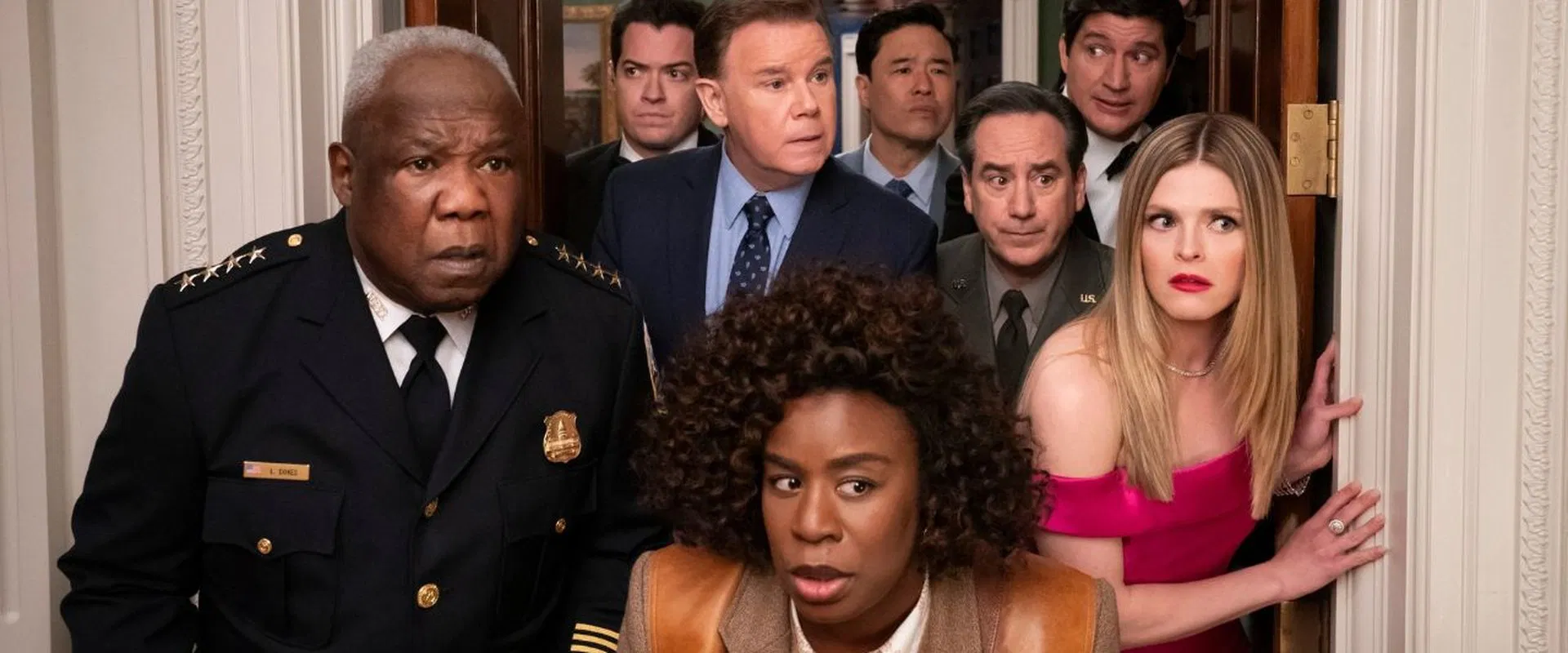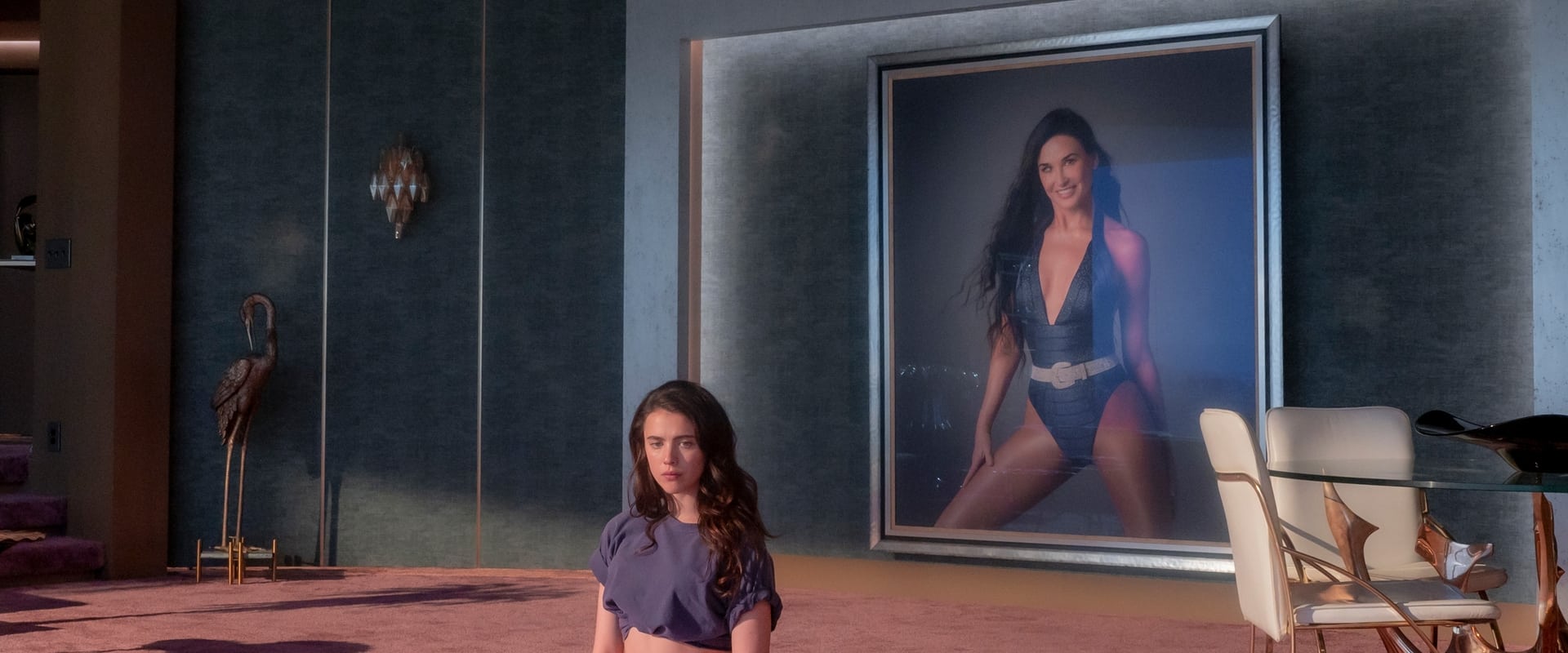The Residence, a captivating new series on Netflix created by Paul William Davies and produced by Shondaland, emerges as an outstanding addition to the murder mystery genre, effectively blending political satire, character-driven drama, and intricate plotting. Inspired by The Residence: Inside the Private World of the White House by Kate Andersen Brower, the show reimagines the inner workings and secrets of the White House staff with inventive flair. This review will explore the series' compelling elements—its adroit narrative structure, remarkable performances, meticulous set design, and its ability to weave humor seamlessly into dark intrigue—across clearly delineated sections to promote analytical clarity.
Narrative and Structural Composition: A Classic Yet Innovative Whodunit
At its core, The Residence excels as a sophisticated murder mystery with a deliberately complex, non-linear storytelling approach. The series deploys frequent flashbacks, flash-forwards, and motive-driven interviews from various suspects, constructing a multi-layered tapestry that invites the viewer to reconsider each character's role repeatedly—much like the greats of the genre such as Knives Out and Agatha Christie’s works. This structural choice amplifies suspense, as every new perspective introduces fresh suspects, red herrings, or potential motives, preventing complacency even when familiar plot devices are employed.
What distinguishes The Residence is the dynamic pacing; each episode balances investigative progression with comedic interludes, maintaining high energy and engagement over its total eight-hour run. Despite a critique often levied at extended recaps, here, the pacing prevents disengagement, culminating in a final act that cleverly pays off the long build-up. The show’s use of storytelling continuity—fluctuating timelines and layered revelations—facilitates an immersive experience that rewards attentive viewing.
Characterization and Performances: A Stellar Ensemble with Uzo Aduba at the Forefront
Central to The Residence’s success is an ensemble of vibrant, meticulously written characters brought vividly to life through superb acting. Most prominent is Uzo Aduba’s portrayal of Córdoba-based detective Cordelia Cupp, a figure who seamlessly combines eccentric brilliance with sharp wit. Aduba’s performance evokes admiration for her nuanced timing in both comedic and serious moments, an Emmy-worthy display that anchors the series’ tonal flexibility.
The cast’s diverse and memorable characters—including the neurotic, bird-obsessed detective, the highly eccentric staff members, and seasoned political operatives—are differentiated through sharp dialogue, subtle development arcs, and individual quirks. For example, recurring light moments highlight quirky character traits such as Cordelia's obsessive birdwatching and her fondness for canned mackerel, providing levity amidst the tension.
A remarkable feature of The Residence is its ensemble cast, each member contributing distinctive personalities and energy. Central to these is Uzo Aduba as Detective Cordelia Cupp, whose eccentric brilliance, rapid wit, and emotional depth infuse the series with vitality. Aduba’s performance is complemented by Randall Park, who deftly plays a keen Secret Service investigator, providing balance with subtle humor. Giancarlo Esposito assuming Raphael Braugher’s initially announced role—to encapsulate the authoritative yet complex manner expected of his character, A.B Wynter. Additional standouts include Jason Lee, Edwina Findley, and Ken Marino, each providing performances that enrich the narrative tapestry—distinctive, credible, and memorable. Notably, every performer contributes their uniqueness, marking a well-acted series with a sustained level of professionalism and character authenticity.
Additionally, the series features notable guest appearances that add depth and realism to its political world. Julian McMahon portrays a fictional Australian Prime Minister, a casting choice rooted in his real-life connection as the son of former Prime Minister William McMahon, adding an authentic touch to the international diplomatic scenes. Moreover, former Senator Al Franken from Minnesota appears in a supporting role, presiding over a congressional committee, a casting decision that lends credibility given his own tenure in the United States Senate from 2009 to 2018. These casting selections contribute to the series’ overarching authenticity, blending real-world political figures with fictional narratives to enhance the show's layered satire and political intricacy. Kylie Minogue's appearance functions within the story as a guest performer after Esposito’s character requested her contribution on very short notice, after major musicians, including Harry Styles, declined the opportunity. Her small but impactful scenes are executed with professionalism, adding a pop-culture layer to the political intrigue.
Production Design and Setting: An Immaculate Deconstruction of the White House
The series displays significant attention to detail in its set design, capturing both the grandeur and intimate corners of the White House. Whether real or meticulously fabricated, the cutaway visions of the estate’s secret passages and historic interiors evoke authenticity comparable to acclaimed political dramas. The narrative’s focus on real presidents, historical references, and detailed protocol lend added credibility and depth; notable is the tribute to former leader personalities, enriching the fictive universe’s realism.
Additionally, The Residence’s frequent callbacks to cultural touchstones—references to films like Knives Out, Hercule Poirot, or The Godfather—permeate its dialogue, enhancing its layered texture. For example, characters’ verbal nods to classic detective work situate the show within a respected mystery tradition, enriching the viewing experience for genre connoisseurs.
Writing and Humor: A Script that Balances Wit, Suspense, and Humanity
The series’ script stands as a major strength—cleverly written with rapid-fire dialogue and rich character interactions that promote nuanced dialogue arcs. The writers’ talent for craft is palpable in scenes heavy with institutional politics, personal grievances, or subtle misdirection. Telephone exchanges or courtly interrogations oscillate smoothly between comedic and poignant moments, such as the touching depiction of the housekeeper and her daughter, adding emotional resonance without sacrificing humor. The odd obsession with birdwatching is both an amusing motif and an insightful reflection of detailed observation, serving as a metaphor for the series’ thematic focus on perception and truth.
Critical Susceptibility to Pacing and Final Act Resolution
While The Residence has garnered overwhelming praise, it is not without minor flaws. The finale, a lengthy 30-minute culmination that aggregates prior reveals, may feel overly didactic to some viewers. Though the culmination of plot twists links satisfyingly with earlier developments, some purists might find the length of the concluding recap unwarranted, potentially detracting from the immediacy of the resolution.
Nevertheless, the reintegration of key elements—such as the surprising reveal of the mastermind, complex motive interplay, and the meticulous unraveling of suspects’ secrets—demonstrates masterful writing. The resolution retains a jury-rigged, agatha-christie charm yet advances fresh twists that keep the genre’s tradition alive.
Conclusion: A Series that Defines the Modern Mystery-Thriller
The Residence stands out as an exceptional pairing of intelligent scripting, stellar casting, and genre-rich storytelling. Its deft balance of humor, mystery, and political satire creates an infectious viewing experience—apt for audiences seeking both compelling intrigue and levity. While it pays homage to classic whodunits, its inventive narrative techniques and multidimensional characters elevate it into the upper echelons of contemporary television mystery series allowance.
Its central performance by Uzo Aduba is a tour de force; her charismatic presence fuels the show’s momentum far beyond typical procedural formulae. The production’s dedication to detail, from set design to writing depth, underscores its aim for authenticity—whether real or fictitious.
Given its exceptional quality, The Residence warrants critical acclaim comparable to other genre milestones like Knives Out, securing its position as one of this decade’s most innovative television mysteries. This series is a definitive must-watch for fans of clever plotting, strong characterizations, and seamless comedy-meets-drama arrangements.


